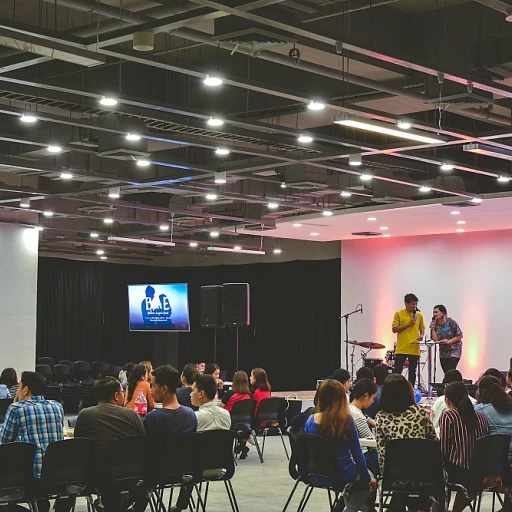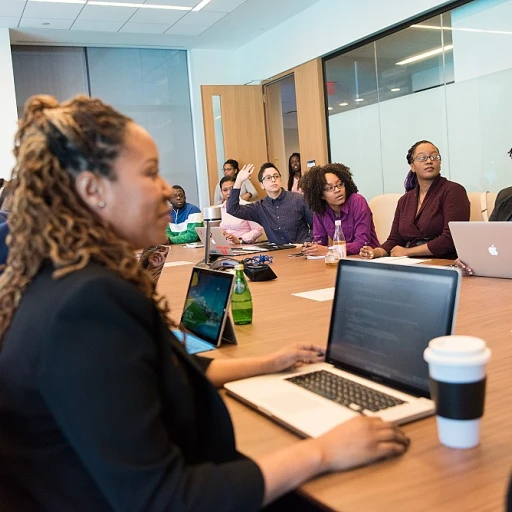
Fostering Talent Acquisition Excellence in New Zealand's Competitive Market
Fueling Talent Acquisition Initiatives
In the dynamic business environment of New Zealand, securing top-tier talent is paramount for the success of any organization. Office managers are at the forefront of this challenge, responsible for ensuring that their companies remain attractive to the best candidates. A pivotal step in this process is developing an employer brand that resonates with the values and expectations of potential employees. Careful crafting of job descriptions that highlight growth opportunities and company culture can set an organization apart in a sea of listings.
Enhancing Recruitment Efforts with Leading Tools and Technology
To remain competitive in New Zealand's job market, office managers must leverage cutting-edge recruitment technologies. From AI-powered applicant tracking systems to social media platforms, employing a multiplicity of tools ensures a wider reach and a more efficient selection process. For instance, using LinkedIn's advanced search functionalities can unearth candidates who match the bespoke needs of the business. Integrating innovative recruitment strategies underpins a company's commitment to excellence and modernity—appealing traits for incoming talent.
Creating Partnerships with Educational Institutions
Establishing connections with universities and polytechnics offers a pipeline to fresh talent eager to make their mark in the professional world. By engaging in internship programs and career fairs, office managers not only increase brand visibility amongst the future workforce but also contribute to the development of industry-relevant skills. Partnerships like these ensure that businesses have early access to the brightest minds, ready to innovate and drive corporate success.
Implementing Inclusive Hiring Practices
Embracing diversity not only fosters a rich company culture but also enhances problem-solving and creativity within teams. Office managers who advocate for inclusive hiring practices demonstrate that their organization values varied perspectives and experiences. By showcasing this commitment in recruitment campaigns, companies in New Zealand can attract a broader spectrum of candidates, all while building a reputation as an equal opportunity employer. Statistical evidence supports that diverse teams often outperform their homogeneous counterparts, making inclusivity a strategic advantage in talent acquisition.
Strategizing for the Long Run: Employee Development
The quest for talent does not end with acquisition; nurturing employees through continuous development plans is critical for sustained organizational growth. Office managers can strategize long-term by investing in training and mentorship programs that align with the company's strategic objectives. Employees who see a clear path for progression within the firm are more likely to remain engaged and loyal. This approach to talent management fosters an environment where individuals can thrive, thereby attracting even more talent to the business.
Cultivating High Retention Rates: A Detailed Look at Employee Engagement for Office Managers
Unlocking the Secret to Employee Loyalty
In the heart of New Zealand's dynamic work environment, office managers are seeking to unravel the secret behind high employee retention rates. It's clear that a company's success hinges not just on acquiring talent but retaining it. Engagement strategies are the cornerstone—a Gallup study revealed that highly engaged teams show 21% greater profitability. This underlines the critical role office managers play in fostering work environments that promote commitment and loyalty. High retention is achieved when employees feel valued and invested in their roles—a meaningful purpose has been shown to significantly boost job satisfaction and tenure.
Smart Engagement Tactics for Motivated Teams
Instrumental to retaining talent, office managers can harness smart engagement tactics that resonate with today's workforce. Examples include crafting personalized career development plans or offering flexible working arrangements, as they have been linked with enhanced job satisfaction and productivity. Additionally, recognizing employee achievements through awards or public acknowledgement can amplify morale and motivation—a well-timed 'thank you' can be as effective as any monetary incentive. A strong emphasis on team-building activities also plays a major part, creating a culture of unity and cooperation that's essential for a vibrant office atmosphere.
Inclusive Culture: A Magnet for Retention
An inclusive office culture is a magnet for retention. It's about more than diversity on paper; it’s about cultivating an environment where every employee’s voice is heard and valued. By facilitating open communication and providing channels for feedback, office managers can ensure that all team members feel they have a stake in the company's future. An inclusive culture minimizes the risk of untapped potential and builds a strong foundation of trust and collective effort that’s necessary for any thriving office.
Measuring Engagement to Drive Improvements
Measuring employee engagement can provide invaluable insights into what's working, and what's not. Surveys, one-on-one interviews, and focus groups are practical tools for gauging the pulse of the workplace. Office managers can leverage these metrics to drive continuous improvement in their engagement strategies. Applying data-driven decisions helps in customizing the approach to employee wellbeing and ensures alignment with the unique needs of the staff. Regularly reviewing these engagement metrics allows office managers to stay ahead of the curve and adapt quickly to shifting employee expectations and market conditions.









